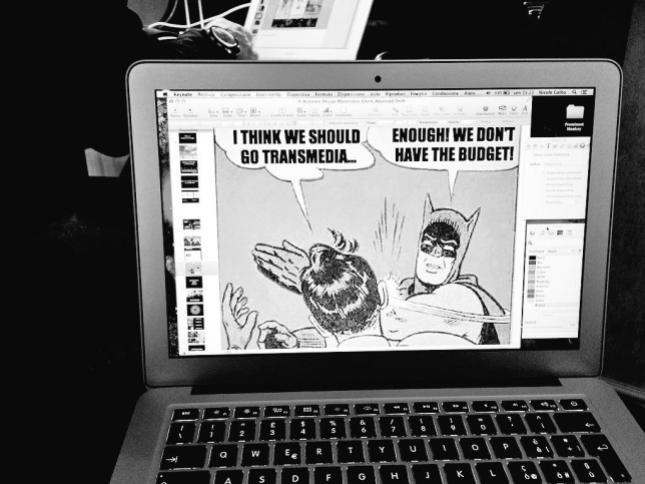Let’s be frank: ideas need to circulate as much as possible, and new terms as well. So I thought I’d spread the word a bit again, given that “Audience Design” is a fairly recent concept introduced just a few years ago by the TorinoFilmLab to raise awareness of the need for a strategic approach to promoting independent and art-house films at an early stage of development.
The title of this post matches the master class that I ran last Friday in Belgium. It was a different format from the workshop Juan Morali and I conceived last November in Germany on behalf of TFL, as this time we were both invited to provide an overview on audience engagement strategies to filmmakers, producers, students and representatives of the Flanders Film Fund.
So we joined the TorinoFilmLab team at the end of the first residential workshop of the 2015 Audience Design Programme, which this year took place in Ghent. On Friday 20 March we delivered our master class at KASK Cinema, providing a wide range of case studies that spanned recent blockbusters as well as small and obscure gems; international projects with very consistent budgets and labours of love made for free; linear and interactive narratives; documentaries and fictional films.
We provided an overview of some basic concepts of audience engagement, such as the difference between core and market niches, the creation of “personas”, and online vs digital communities. And of course we went through the difference between Audience Design and marketing, “the necessary evil”. The core of the master class was arranged around a set of key words that we believe are crucial when thinking of audience engagement: “Intensity and Scale”, “Interaction and Co-Creation”, “Tone and Pace”, “Immersion and Gamification”, as well as “Pertinence and Consistency”.
We also addressed some “failures” and tried to understand what we can learn for example from an apparently successful transmedia project that is forced to close down because it is not economically sustainable in the long run.
One of the closing slides provocatively asked: “Where do we go from here?” It was meant to open the debate on how quickly the film industry needs to adapt to new need of audiences and react to alternative forms of consumption. On a more personal level, Juan and I are going to take part to the next TFL Alumni Meeting that will take place in Karlovy Vary this coming July. As we have many more stories to tell and exciting projects to discover together, expect a follow-up to this post from the Czech Republic.



Comments are closed.